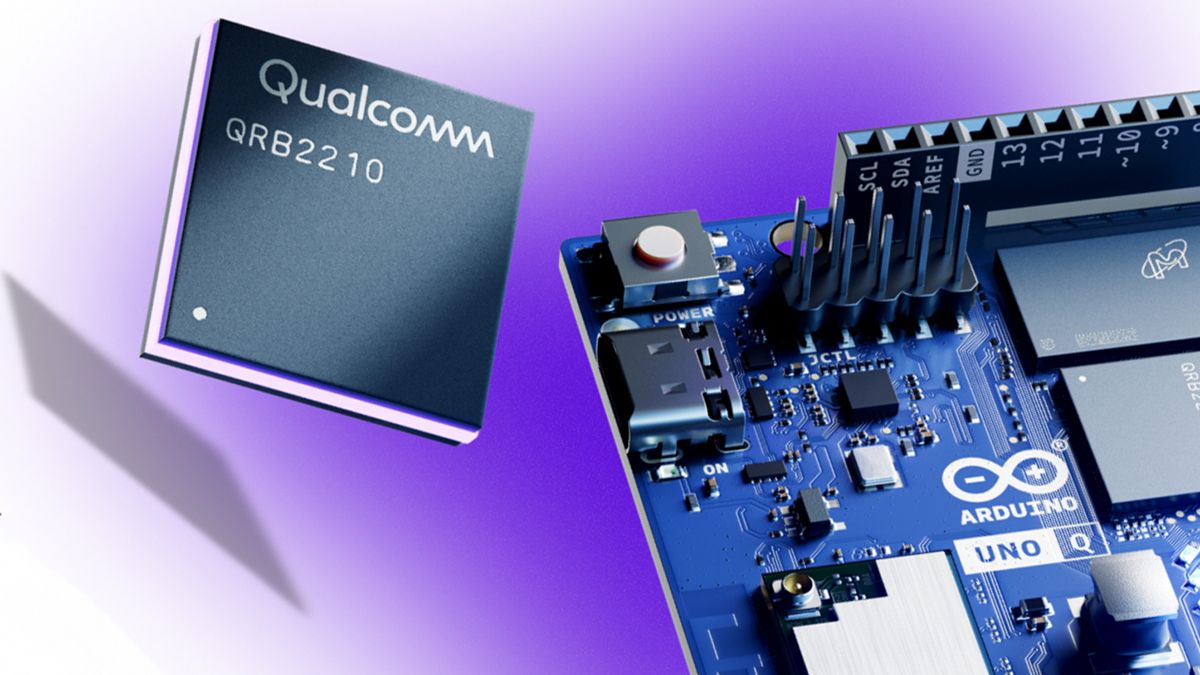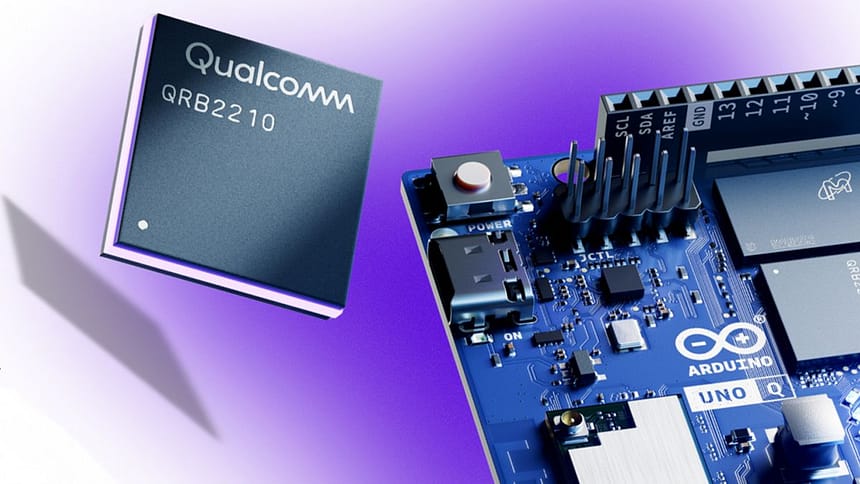
- Arduino acquisition links Qualcomm’s edge computing with open-source innovation
- New Arduino UNO Q board debuts with Qualcomm Dragonwing processor
- Qualcomm says Arduino’s open model and 33M community will stay independent
In a surprise announcement, Qualcomm has revealed plans to acquire Arduino, the open source hardware and software company behind the popular microcontroller boards.
The deal, which is subject to regulatory approval, will help Qualcomm expand its reach into the global developer community and boost its position in edge and AI computing.
Arduino, which has more than 33 million active users, will retain its brand and continue supporting a wide range of microcontrollers from different chipmakers.
Arduino UNO Q
The acquisition will pair Arduino’s open source approach with Qualcomm’s processing, graphics, and AI capabilities, with the aim of simplifying development across education, industry, and research.
“With our acquisitions of Foundries.io, Edge Impulse, and now Arduino, we are accelerating our vision to democratize access to our leading-edge AI and computing products,” said Nakul Duggal, group general manager for automotive, industrial, and embedded IoT at Qualcomm Technologies.
“By combining their open-source ethos with Qualcomm Technologies’ portfolio, we’re helping enable millions of developers to create intelligent solutions faster and more efficiently,” Duggal added.
The first product from the collaboration, the Arduino UNO Q, will feature a “dual brain” design powered by Qualcomm’s Dragonwing processor, pairing Linux-based computing with real-time microcontroller capabilities.
It will be compatible with Arduino App Lab, a new integrated environment that connects real-time OS, Linux, Python, and AI workflows.
“Joining forces with Qualcomm Technologies allows us to supercharge our commitment to accessibility and innovation,” Arduino CEO Fabio Violante said. “The launch of UNO Q is just the beginning – we’re excited to empower our global community with powerful tools that make AI development intuitive and open to everyone.”
Massimo Banzi, Arduino’s co-founder, added joining Qualcomm would help “bring cutting-edge AI tools to our community while staying true to what has always mattered most to us.”
Follow TechRadar on Google News and add us as a preferred source to get our expert news, reviews, and opinion in your feeds. Make sure to click the Follow button!
And of course you can also follow TechRadar on TikTok for news, reviews, unboxings in video form, and get regular updates from us on WhatsApp too.






